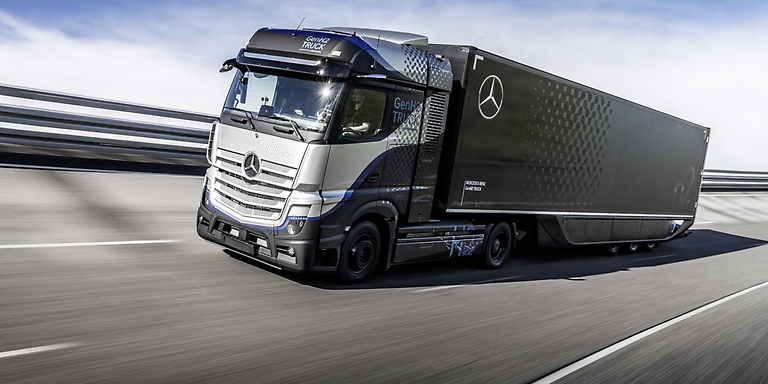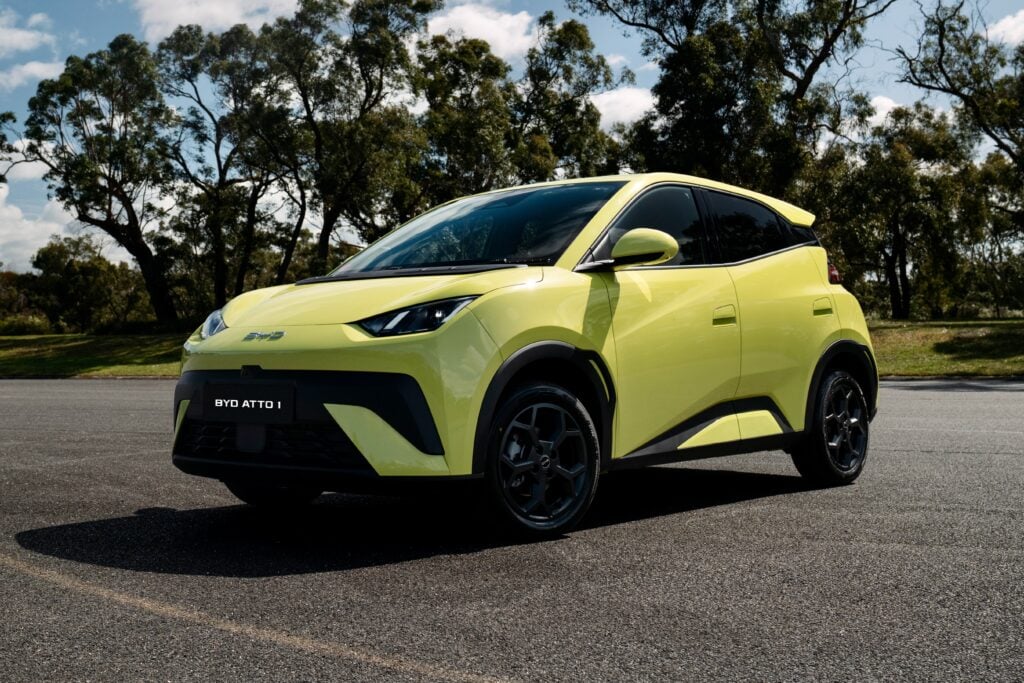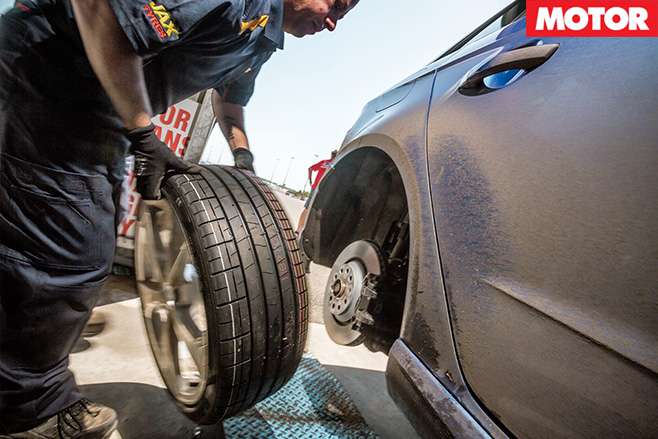Ola Källenius is making sense. The Mercedes-Benz chief and chairman of the board of management of its parent company Daimler, isn’t the type to emit hot air. Instead he’s talking hydrogen, explaining why it’s trucking wonderful stuff.
The serious Swede doesn’t put it quite so colourfully, but he’s firmly convinced that the gas’s obvious role in our decarbonised future is as a fuel for high-mileage, heavy-duty, electric-powered freighters of the road. “For long-haul – through Europe, or the USA, Australia – hydrogen as an energy source is a logical bet,” he says.
He already has money in the game. In April 2021, Daimler Truck entered a joint venture with Volvo Group to speed the introduction of hydrogen fuel cells for long-distance trucks. The new company, Cellcentric, is aiming for production from 2025.
Källenius is close to this project. Another of his roles is as chairman of the supervisory board of Daimler Truck, a group which includes Mercedes-Benz, Freightliner, Western Star and Fuso among its six brands. The objective, he says, is to develop a system capable of powering a 40-tonne semi through an energy-intense 1000km working day.
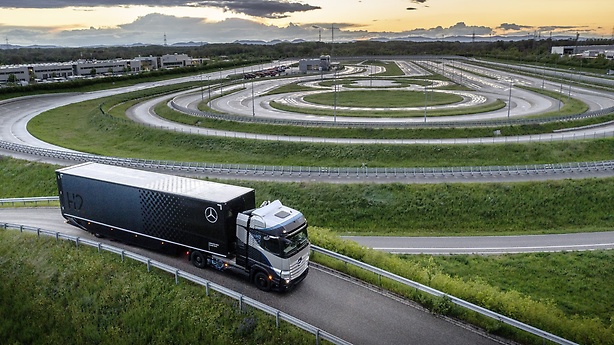
“We think it’s much more pragmatic, much more realistic, that the fuel-cell case is in a business where you need an enormous amount of energy to solve the problem.” The energy density of high-pressure hydrogen tanks is superior to lithium-ion battery packs, he notes. They can also be refilled much more quickly. Both factors make them a logical choice for heavy haulage.
Some will be deeply disappointed that Mercedes-Benz doesn’t see hydrogen fuel cells as right for cars. There are plenty of people keen to embrace electromobility who view hydrogen fuel cells as the obvious answer to the shortcomings of batteries.
I get it. I’ve driven hydrogen fuel-cell vehicles and they’re good.
The first was a Toyota Highlander FCHV (Fuel Cell Hybrid Vehicle) sometime in the noughties in California. Based on the US-market version of the Kluger, its tanks held 6kg of hydrogen, enough to drive around 500km.
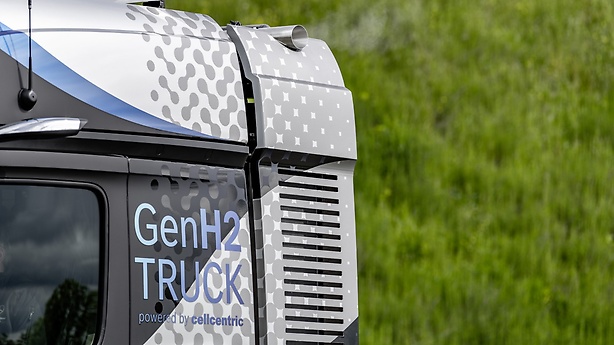
Then there came a Honda FCX Clarity, driven in Germany last decade. This Accord-size sedan was happy to cruise at its electronically limited 160km/h top speed on the autobahn, leaving nothing more than a mist of water in its wake.
Most recent of my hydrogen highs was in a Mercedes-Benz GLC F-Cell, back 2019 and again in Germany. The electric compressor that pumped air into its fuel-cell stack looked like a giant turbocharger, and sometimes sounded like one.
And I recall engineers telling me that filling its tanks took only three minutes.
The GLC F-Cell was a low-volume experiment. The few hundred that were made were rented to selected customers in German cities where hydrogen was available. Then, in 2020, came news that Mercedes-Benz was shutting down its program to develop hydrogen fuel-cell passenger vehicles. Honda had put its program on hold months earlier.
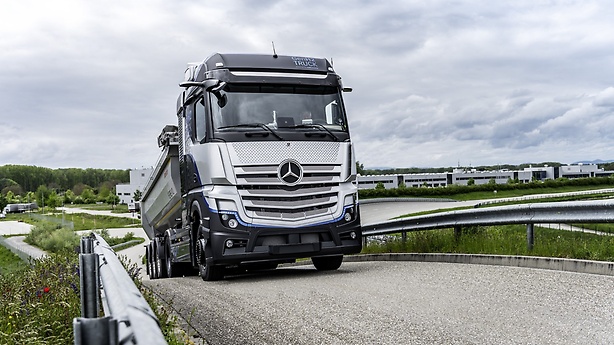
The German car maker cited the high costs of producing hydrogen fuel-cell cars compared to battery-powered vehicles as the main reason for the decision. But Källenius thinks there’s an even bigger issue with hydrogen. It’s the lack of existing infrastructure to supply the fuel.
For trucks, though, it’s different. “The infrastructure question can be solved in a more pragmatic way,” he says “Because you would only need, in the first instance, fuelling stations alongside the highway network. Whereas, for personal use cars you need it everywhere.”
And electricity is already everywhere. Källenius says that 95 percent of charging of Mercedes-Benz EVs is done at home.
“You have your wallbox. Every time when I leave my home to drive, I’m actually leaving with a full vehicle. In effect, I live at the gas station, right?” The same can’t be said about that other gas, hydrogen…
We recommend
-
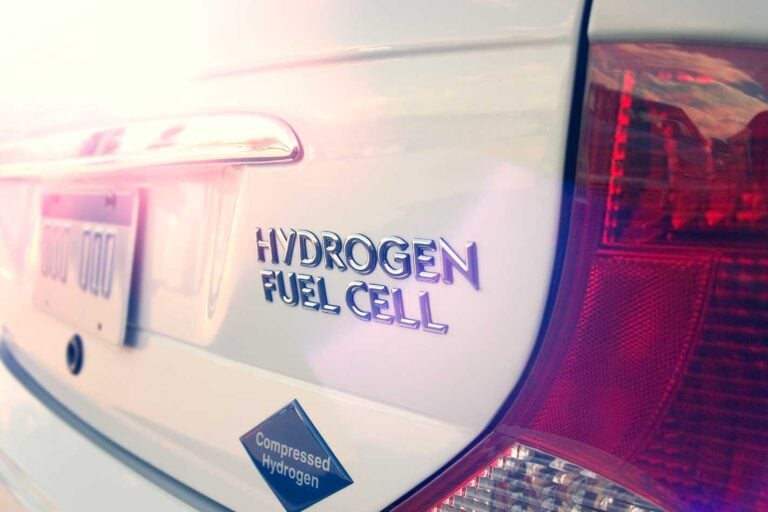 News
NewsAustralian engineers at forefront of hydrogen fuel-cell development
Efforts are progressing to improve the efficiency of hydrogen-powered cars
-
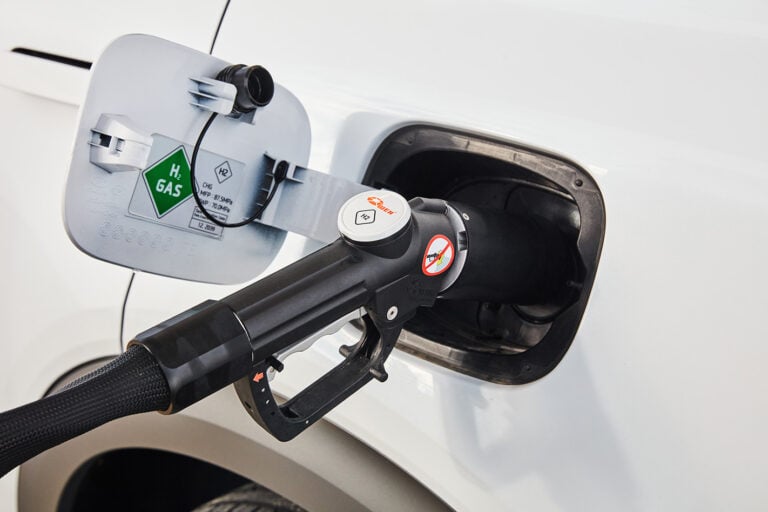 News
NewsVictoria’s Gippsland region set to become hydrogen vehicle hub
The Gippsland area in Victoria’s south east is set to transform from brown coal to hydrogen
-
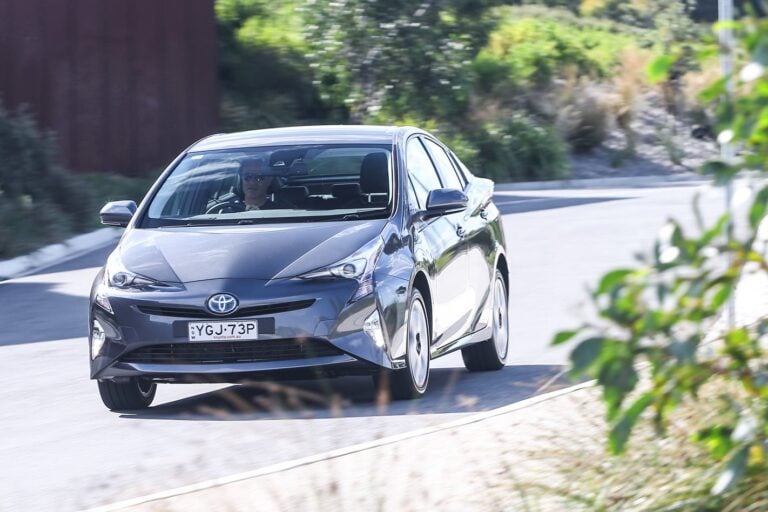 News
NewsNext-generation Toyota Prius could feature a hydrogen fuel-cell
Reports from Japan suggest a FCEV Prius might not be off the cards


